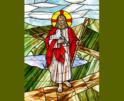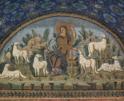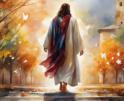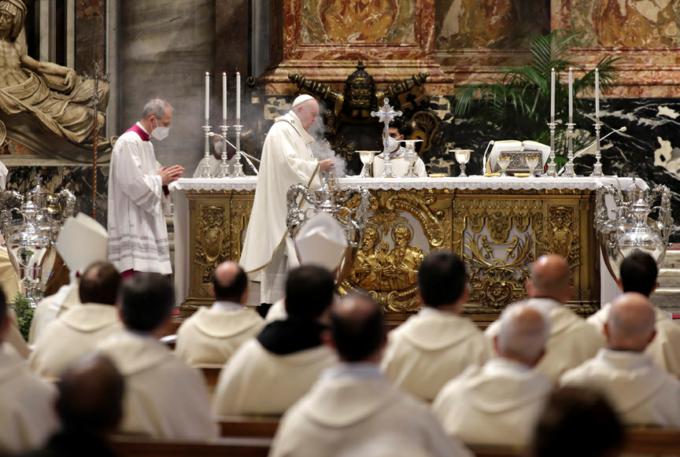
Faith
The "ultimate antidote to scandal," he says, is not found in "structural reforms" or in a "merely cultural Catholicism," but in "holiness of life."
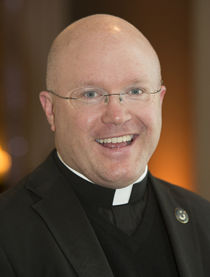
Landry
Each year, as we draw near to Holy Thursday, the Church asks us to pray for priests, future priests, and the renewal of the priesthood Jesus instituted during the Last Supper.
The celebration of the Chrism Mass, traditionally held the morning of Holy Thursday but often anticipated earlier in Holy Week, features the moving rite in which priests renew before their bishop their dedication to unite themselves closely to Christ and strive to imitate him, to be faithful ministers of his mysteries, to celebrate the Eucharist with sincere devotion, to sacrifice worldly pleasures and ambition joyfully for the good of Christ's flock, and to teach the Christian faith and share Christ's peace and love.
The bishop, in turn, asks the faithful to pray for their priests and for him, that God may bless them with the fullness of his love and help them to remain faithful, lead others to him, fulfill their duties, teach and serve, be a genuine sign of Christ the High Priest and Good Shepherd.
This ceremony takes place annually in those dioceses teeming with baptisms, conversions, new parishes and priestly vocations as well as in those that are struggling, merging and closing parishes, and importing missionary priests. Whether in propitious and adverse times, the rite is a sign of hope by which the Church turns to the Master of the Harvest and prays for the total reinvigoration of her priestly laborers.
In a new book, Archbishop Alfred Hughes describes what type of renewal priests and bishops today, especially in the United States, need most.
In "Priests in Love with God and Eager to Witness to the Gospel" (Ignatius Press, 172 pp.), the emeritus Archbishop of New Orleans draws from his nine decades of experience as a disciple, priest, seminary professor, spiritual director, and bishop to provide a succinct, eloquent and timely prophetic summons for the Church to go beyond the necessary disciplinary reforms of recent decades to a rebirth in priestly virtue.
Seamlessly interweaving history, Sacred Scripture, theology, and the daily newspaper, Hughes confronts head on, among other subjects, the "special challenges of the clergy sex abuse scandal and the sometimes inept way in which some bishops have handled it," the obstacles to priestly ministry that have arisen during the pandemic, the way the thorn of racism in society and within the Church impacts the priest's fatherhood and the Church's motherhood, and the harm done to the credibility of the proclamation of the Gospel by the narcissistic perversion of the priesthood called clericalism.
Hughes makes the case that throughout Church history, whenever the Church has faced daunting difficulties, God has raised up saints, "remarkable men and women to model what it means to take the Gospel seriously," who show that renewal always begins with God and with priests' aligning their life to him.
The "ultimate antidote to scandal," he says, is not found in "structural reforms" or in a "merely cultural Catholicism," but in "holiness of life." Such a spiritual and moral renewal of the clergy will "provide the only credible witness that ordained leadership in the Church has turned a corner" and "counteract the public image of sinfully compromised clergy."
Priestly holiness begins, he asserts, with priests dropping to their knees in adoration before God. There, they learn how to embrace interiorly the "dark night" on which God seeks to lead every believer -- and grasp how to guide the Church through the dark night's ecclesial equivalent.
Sacerdotal sanctity must extend, he argues, to priests living with integrity, "radical embrace of Gospel simplicity of life, chaste celibate life and love, and joyful obedience." These evangelical virtues are "the God-given antidotes to clericalism" not to mention many forms of "anti-clericalism," he continues, because they "counteract the threefold vices that lead to clericalism," respectively, entitlement, manipulation, and egotism.
Hughes buttresses these conclusions with a brilliant journey through Church history, with chapters dedicated to the priestly life, writings and reforms of the apostles, of Sts. Ignatius of Antioch, John Chrysostom, Augustine, Gregory the Great, Bernard, and Thomas Aquinas, and of Cardinal de Bérulle and the other members of French school of priestly spirituality. He also tackles the challenges of Martin Luther and the response of the Counter-reformation, as well as the teachings of the Second Vatican Council and they extent to which they've been implemented or rejected.
Throughout the work, while not downplaying the grave challenges, he radiates hope and confidence because, he says, Church history reveals that God the Holy Spirit regularly renews the gifts of Pentecost and unleashes them for the reform and holiness of God's people. Now is a time, he writes, for "releasing the power of the Holy Spirit" anew, so that bishops and priests "on fire with zeal because they have met the Lord in a transforming way" will help the whole Church come alive.
Archbishop Hughes is a man filled with that Spirit, his gifts and his fruit.
His new book, which exudes the Spirit's wisdom and fire, is an important contribution to the renewal of the clergy and the reform of the Church.
- Father Landry is a priest of the Diocese of Fall River who is national chaplain to Aid to the Church in Need USA, a Papal Missionary of Mercy and a Missionary of the Eucharist for the US Bishops.
Recent articles in the Faith & Family section
-
Popular devotions and the liturgyFather Robert M. O’Grady
-
The Fight for Our FaithMaureen Crowley Heil
-
The shepherd's voiceScott Hahn
-
Scripture Reflection for April 21, 2024, Fourth Sunday of EasterJem Sullivan
-
The new Temple: How Easter changes religionDr. R. Jared Staudt



